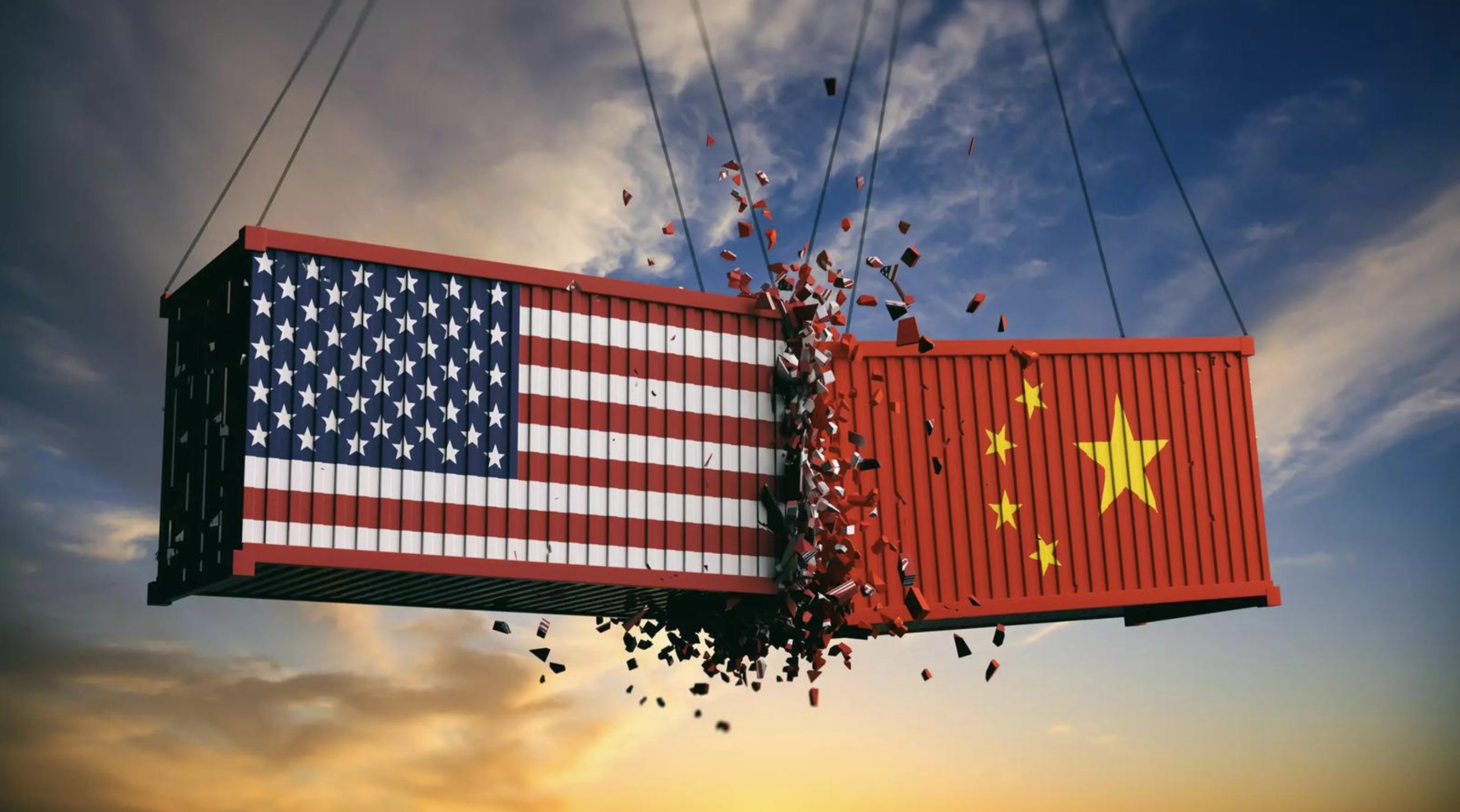Trade wars have become a growing concern in today’s interconnected global economy following President Donald Trump taking office in the United States and his threats to impose tariffs on various countries. When countries impose tariffs, sanctions, or other trade barriers on one another, the consequences ripple across borders, impacting businesses, consumers, and entire economies.
While these economic conflicts are often triggered to protect domestic industries, they can just as easily disrupt supply chains, raise prices, and slow down economic growth.
What Is a Trade War?
A trade war typically unfolds when two or more countries engage in tit-for-tat measures, imposing tariffs and restrictions in response to economic or political disputes. These restrictions can take many forms, including tariffs – taxes imposed on imported goods to make foreign products more expensive – or quotas that limit the amount of a specific product a country is allowed to import. In some cases, governments offer subsidies to domestic industries to give them a competitive advantage, or they implement outright bans on products from specific nations.
While the intention may be to strengthen local industries, trade wars often result in unintended consequences, creating turbulence for national economies and disrupting global trade flows.
What Causes Trade Wars?
The causes behind trade wars vary widely, often stemming from a combination of economic, political, and strategic factors. One of the most common triggers is the desire to protect domestic industries from foreign competition. Sectors like steel, agriculture, and technology are frequently at the center of such disputes, as governments aim to shield local businesses from cheaper imports.
Trade imbalances also play a significant role. When one country consistently imports far more than it exports, its government may impose tariffs to reduce dependence on foreign goods and encourage domestic production.
Political and geopolitical tensions can escalate trade conflicts further. Countries sometimes use trade restrictions as tools of leverage in diplomatic disputes – for example, sanctions imposed in response to human rights violations, environmental concerns, or military aggression. Currency manipulation, where governments devalue their currencies to make exports cheaper, often leads to retaliatory measures from trading partners. Intellectual property disputes, especially cases involving the theft of patents, copyrights, and trade secrets, are also common triggers.
How Do Trade Wars Impact the Global Economy?
The economic consequences of trade wars are far-reaching and complex, touching everything from household budgets to stock trading markets and everyday consumers. One of the most immediate impacts is rising consumer prices. When tariffs increase the cost of imported goods, businesses usually pass those costs onto consumers, making items like electronics, cars, food, and clothing more expensive.
Trade wars also disrupt global supply chains. Many products today are assembled from components sourced across multiple countries. When tariffs or sanctions block the free flow of these materials, production slows down, costs rise, and companies struggle to deliver products on time.
Inflationary pressures often follow, as higher import costs drive up overall prices. This reduces consumers’ purchasing power and dampens economic activity. In sectors like manufacturing and agriculture – which rely heavily on exports – declining overseas demand can lead to layoffs, factory closures, and long-term economic stagnation.
Financial markets are especially sensitive to trade wars. Investors react to uncertainty with caution, leading to volatility in stock prices. Global indices like the S&P 500 and Dow Jones frequently see sharp declines when trade tensions escalate, as investors worry about weakened corporate profits, slower economic growth, and global instability.
Which Sectors Are Most Affected?
While trade wars touch every corner of the economy, some industries bear the brunt more than others.
The technology sector is particularly vulnerable. Many tech products rely on complex supply chains that span continents, especially for components like semiconductors. When tariffs disrupt these supply chains, production slows, innovation suffers, and prices rise.
Agriculture is another sector hit hard by trade wars. Farmers often rely on international markets to sell products like soybeans, meat, and dairy. When countries impose retaliatory tariffs on these goods, exports shrink, leaving farmers with surplus products and declining incomes.
The automotive industry faces similar challenges. Car manufacturers depend heavily on imported raw materials like steel and aluminum. Tariffs drive up those costs, making vehicles more expensive to produce – and to buy.
Retailers also feel the squeeze. With the cost of imported goods rising, retailers must choose between absorbing the higher costs or passing them on to price-sensitive consumers. This pressure can be especially challenging for businesses that depend on affordable imports to remain competitive.
Historical Trade Wars That Shaped Global Trade
Trade wars are not new, and history offers several cautionary tales about their dangers.
One of the most infamous examples is the Smoot-Hawley Tariff Act of the 1930s. Enacted during the Great Depression, this law imposed tariffs on more than 20,000 imported goods. Other countries retaliated with their own tariffs, triggering a collapse in global trade that deepened the economic downturn.
A more recent example is the U.S.-China trade war, which began in 2018. In response to trade imbalances and accusations of intellectual property theft, the United States imposed tariffs on hundreds of billions of dollars’ worth of Chinese imports. China retaliated with tariffs on American agricultural and industrial products. The conflict disrupted supply chains, dampened global growth, and caused widespread market uncertainty.
In the 1980s, the Japan-U.S. trade dispute centered on the auto and electronics industries, with the United States accusing Japan of unfair trade practices. This led to quotas, tariffs, and years of economic tension between the two countries.
More recently, the 2018 steel tariffs saw the United States impose duties on European steel and aluminum. The European Union responded with tariffs on American products, from motorcycles to bourbon, further inflaming tensions between key trading partners.
Can Trade Wars Be Avoided?
Although trade wars can be damaging, they are not inevitable. There are multiple ways countries can avoid or resolve such disputes, often through diplomacy and cooperation.
Trade agreements and negotiations provide some of the most effective tools for preventing or ending trade wars. By fostering dialogue, addressing underlying economic grievances, and agreeing to mutually beneficial terms, countries can avoid prolonged economic conflict.
Governments can also adopt more open trade policies, reducing protectionist measures in favor of freer markets. Businesses, for their part, can hedge against trade risks by diversifying their supply chains across multiple countries, reducing dependence on any single market.
Global organizations like the World Trade Organization (WTO) play a crucial role in resolving trade disputes and promoting fair trade practices. Strengthening the authority and effectiveness of these organizations can help prevent trade wars from escalating into broader economic crises.
Clear Consequences
Trade wars have far-reaching consequences, affecting not just the countries directly involved but the global economy as a whole. While protectionist policies may offer short-term benefits to some industries, they often result in long-term disruptions, higher prices, inflation, and job losses.
As the world becomes increasingly interconnected, nations must work toward open dialogue, fair trade practices, and sustainable economic policies. In an era where cooperation and interconnectedness define global prosperity, ensuring fair and stable trade relationships is essential for long-term economic growth and stability.







Comments (0)